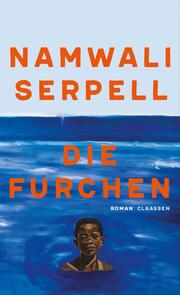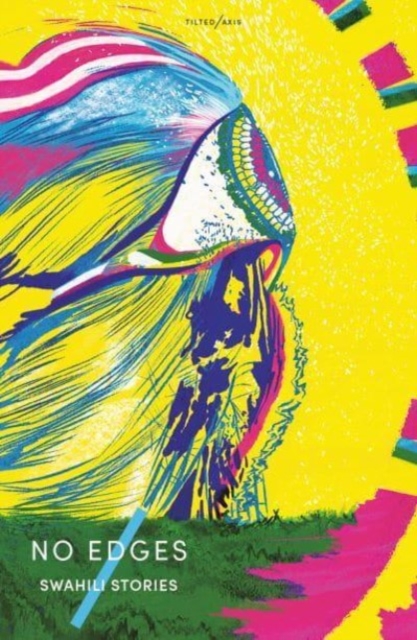Buchtipps - Moderne afrikanische Literatur
Als ihr Vater eines Nachts vor seinem Diner in der kalifornischen Wüste angefahren und getötet wird, glaubt Nora nicht an einen Unfall. Gemeinsam mit Jeremy, einem alten Schulfreund, stellt sie Nachforschungen an und stößt dabei auf Dinge, die ihren Vater in komplett neuem Licht zeigen. Was hatte er zu verbergen? Und was hat das mit seinem Tod zu tun? ***
Cassandra Williams is twelve; her little brother Wayne is seven. One day, when they're alone together, there's an accident and Wayne is lost forever. Though his body is never recovered, their mother can't stop searching. How do you grieve an absence? And how does it feel? A bold exploration of memory and mourning that twists unexpectedly into a masterful story of mistaken identity, slippery reality and black experience. A New York Times Book of the Year. ****

Azúcar (sugar) is a novel about belonging in a world where all things are on the move: people, ideas, foods and not least music. Oswald Kole Osabutey Jnr, henceforth Yunior, leaves his family in Accra to travel to the mythical Caribbean island of Fumaz (think tobacco) where the revolutionary philosophy of peopleism just about keeps its flame alive against the forces of an old-style command centre political bureaucracy and a stifling trade blockade from the big imperialist neighbour to the North.
Andrew Aziza ist fünfzehn Jahre alt, lebt in Kontagora in Nigeria, hängt mit seinen Homies Slim und Morocca rum, fantasiert über weiße Mädchen - ganz besonders Blondinen - und fragt sich, wer sein Vater ist. Wenn er nicht in der Kirche oder Schule ist oder versucht die erste Superhelden-Truppe Afrikas ins Leben zu rufen, beschäftigt er sich wie besessen mit mathematischen Problemen, Black Power und dem Fluch Afrikas.

Ausgezeichnet mit dem Prix Goncourt und dem Internationalen Literaturpreis vom Haus der Kulturen der Welt – Mohamed Mbougar Sarrs großer Roman über die Suche nach einem verschollenen Autor
Wie lernt man seine Tochter kennen, wenn sie tot ist? Mojisola, eine nigerianische Einwanderin in Südafrika, sieht sich mit den Versäumnissen ihres Lebens konfrontiert, als sie die Nachricht vom Selbstmord ihrer Tochter Yinka erhält. Ihre Trauer führt sie nach Johannesburg, wo sie sich, ihren untreuen Ehemann Titus zurücklassend, in Yinkas Wohnung einnistet und mithilfe der schrulligen Vermieterin Zelda um die entfremdete Tochter und die nie behandelten Bruchstellen in ihrer Beziehung zueinander trauert.
The first collection of Swahili fiction in English translation, No Edges introduces eight East African writers from Tanzania and Kenya as they share tales of sorcerers, Nairobi junkyards, cross-country bus rides, and spaceships that blast prisoners into eternity. Here we’re encouraged to explore the chaos of life on a crowded Earth, as well as the otherworldly realms lying just beyond our reach. Through language bursting with rhythm and vivid Africanfuturist visions, these writers summon the boundless future into being. About the authors and translators:

Der Schamane Num vom Nomadenvolk der Nenzen entdeckt im aufgetauten Permafrostboden Russlands das über 10.000 Jahre alte, prunkvolle Grab einer Schwarzen Frau. War sie eine Königin? Unser aller Urmutter? Haben die sibirischen Völker der Jamal-Halbinsel womöglich Vorfahren aus Afrika? Zur gleichen Zeit werden in derselben Gegend riesige Erdgasvorkommen gefunden, deren Ausbeutung das empfindliche ökologische Gleichgewicht der arktischen Tundra zu zerstören droht.

Since Sulaiman Addonia lived and studied in Jeddah, Saudi Arabia, in his early teens, his debut novel The Consequences of Love (Die Leibenden von Dschidda, Hoffmann und Camps 2009) published by Chatto and Windus in 2008 offers authentic insides of the life in Saudi Arabia in the 1980s. Playing during this time the novel tells the story of the young refugee Naser who, together with his young brother, fled to Saudi Arabia to avoid the war back home in Eritrea.

Finally, English readers get to enjoy Kalaf Epalanga's debut novel "Também os brancos sabem dançar" originally published in Portuguese and now available in English translation by Daniel Hahn. An exhilarating debut novel told through three different voices, Whites Can Dance Too is Kalaf Epalanga’s reflection on and celebration of the music of his homeland, the intertwining of cultural roots, and freedom and love.
- erste Seite
- zurück
- 1
- 2
- 3
- 4
- 5
- …
- nächste
- letzte Seite






